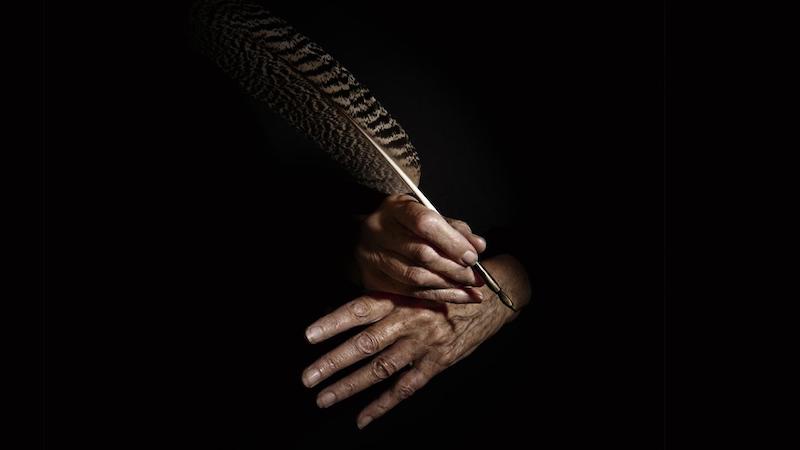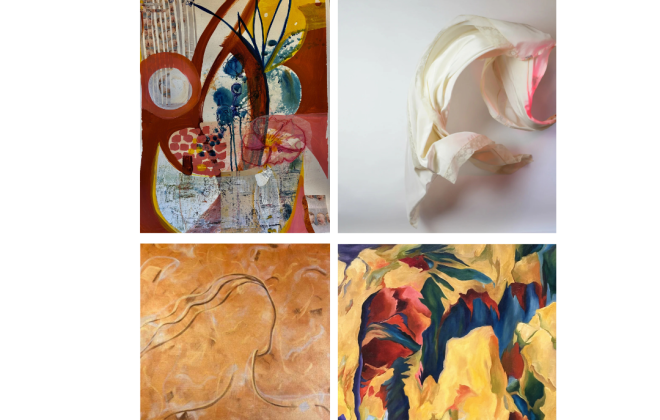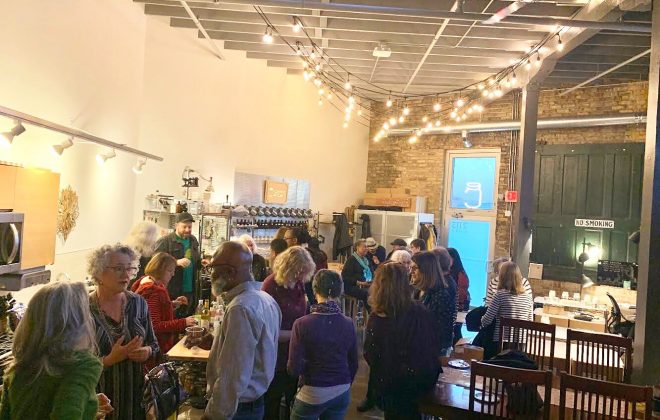We Need to Treat Artists as Workers, Not Decorations
Reposted from Literary Hub
Thank you Melissa Raman Molitor for sharing with us!
Art and money: the great taboo. Art, we’ve been taught to believe, has nothing to do with money, must have nothing to do with money, is defiled by contact with money, is degraded by the very thought of money.
Those ideas, articles of faith today, are actually of relatively recent birth. In the Renaissance, when artists were still regarded as artisans, no one thought twice about exchanging art for cash. It was only in modernity that the notion arose that art and commerce were mutually exclusive.
As traditional beliefs broke down across the 18th and 19th centuries, art inherited the role of faith, becoming a kind of secular creed for the progressive classes. Like religion before it, art was now regarded as superior to worldly things, and you cannot serve both God and mammon.
As with art, so with artists, the new priests and prophets. It was modernity that gave us the bohemian, the starving artist, and the solitary genius, images respectively of blissful unconventionality, monkish devotion, and spiritual election. Artistic poverty was seen as glamorous, an outward sign of inner purity.
To these ideas, the 20th century added an overtly political and specifically anti-capitalist dimension. Art did not just stand outside the market; it was meant to oppose it: to join, if not to lead, the social revolution, which first of all would be a revolution of consciousness. To seek acceptance in the market was to be “co-opted”; to chase material rewards, to be a “sellout.”
Such ideas are as fervently held among laypeople as they are among artists—if anything, more so. We don’t want the artists we love to think about money, and we don’t want to think about them thinking about it. Works of art do indeed exist in the realm of the spirit. In their purity and immateriality, their intensity of being, they give us a taste of the Garden, of that unfallen state in which we believe our souls to have their proper home.
Self-employment is still employment. Even if you don’t have a boss, and even if you do not hate it, it is work.And so we want our artists to be as pure as the art they create. We want them to behave as if the market, with its entanglements, does not exist. Or perhaps it is more precise today to say, as if it no longer exists: as if we had reached the condition, after the end of capitalism, of which so many now dream.
These are beautiful ideals, but they are, precisely, ideals, which must inevitably compromise when entering the world—if only with other ideals, other values. Art may occupy the realm of the spirit, but artists do not. They have bodies as well as souls, and bodies make their gross demands. In plainer language, artists have to eat.
And so, since money isn’t really absent in the arts, it is concealed: through denial, through hypocrisy, through outright lies. “Most people at Sundance,” I was told by one director when I was researching my book The Death of the Artist, “are independent looking to become dependent.”
“It is important to create the illusion that it’s not a business,” says an anonymous contributor in I Like Your Work: Art and Etiquette (a pamphlet published by the indie art press Paper Monument), “and that your relationships do not exist to serve your career.”
If artists don’t talk about money, that’s often because they’d rather not discuss their own, especially if it’s come to them from parents or spouses. Sarah Nicole Prickett has talked about the kinds of lives that she discovered upon entering the New York literary world, individuals with “secret money” and “calm cool expectations.”
Talking about your trust fund or your sweet connections, the feeling seems to be—or about the way you had to hustle, network, and throw a few elbows—would undermine the impression that you earned it all through your own awesome specialness.
The principal victims of this conspiracy of pious make-believe are the artists, typically young ones, who are too ingenuous to spot the double game. If artists are often naïve about money, that’s because they’ve been told not to think about it. If they are often helpless when it comes to managing their careers, that’s because they’ve been instructed to regard “career” as a dirty word.
The number of the people I interviewed told me about having suffered, early on, because they had swallowed the myths about starving artists who never think about money and would rather die than compromise their vision for the suits. And because writers and other artists do create for non-material reasons, I was told by Mark Coker, the founder of the e-book distribution platform Smashwords, “these people are ripe for being exploited.”
That exploitation can take many forms: from outright theft, to self-sabotage, to the monetization of digital content without appropriate compensation, to the underpayment by arts organizations, including nonprofits, of the artists who work for them. But at its root is the perception that artists shouldn’t ask for money in the first place—that, as another of my subjects put it, “art should just be art.”
Art is work. The fact that people do it out of love, or self-expression, or political commitment, doesn’t make it any less so. Nor does the fact that it isn’t a job, a matter of formal employment. Chefs often do what they do out of love, but no one expects to eat for free. Civil rights lawyers do it from political commitment, but they are compensated for their time. Self-employment is still employment. Even if you don’t have a boss, and even if you do not hate it, it is work.
If art is work, then artists are workers. Most people don’t like to hear this. Non-artists don’t, because it shatters their romantic ideas about the creative life. Artists don’t either, as people who have tried to organize them as workers have told me. They also buy into the myths; they also want to think they’re special. To be a worker is to be like everybody else.
No, people don’t deserve to get paid for doing something they love . . . but they do deserve to get paid for doing something you love, something other people love.Yet to accept that art is work—in the specific sense that it deserves remuneration—can be a crucial act of self-empowerment, as well as of self-definition. In “With Complements,” her contribution to the volume Scratch: Writers, Money, and the Art of Making a Living, the journalist-turned-carpenter-turned-memoirist Nina MacLaughlin speaks of learning to reject the idea that praise, opportunity, or exposure are adequate forms of compensation for writing, any more than they would be for building a house.
“People wonder when you’re allowed to call yourself a writer,” she concludes. “I think maybe the answer is when you recognize that it is work.”
Art has value. It ought to have financial value. No, people don’t deserve to get paid for doing something they love—an argument you often hear in connection with issues like piracy and copyright—but they do deserve to get paid for doing something you love, something other people love. That’s how markets work, by putting a price on other forms of value. Wanting to get paid does not mean that you’re a capitalist. It doesn’t even mean that you assent to capitalism. It only means that you live in a capitalist society.
Artists are not in it to get rich. (And if they were, so what? Since when are someone’s motives a reason to decide how much to pay them?) The only artists who fantasize about getting rich are newbies and wannabes. The rest know the truth: becoming an artist is usually a choice to make less than you otherwise could.
Artists persevere, despite financial hardship, because freedom and fulfillment are worth more to them than wealth. (Which is also not a reason not to pay them.) Even within their careers, they often make decisions not to maximize their income—to forgo opportunities that might be lucrative, at least compared to others, but don’t seem very interesting.
When artists assert that they ought to get paid, and paid fairly, it’s because they want to make a living, not a killing. They want enough to keep doing it. Artists are like other professionals who work from a sense of commitment—teachers, social workers—and who opt for satisfaction over wealth. They still have bills to pay. You don’t have to be doing something for the money to want to get money for doing it. You just have to be alive.
William Deresiewicz’s book The Death of the Artist is available from Henry Holt and Co.
Related Posts
Categories
- Alternative Art Space (37)
- Art Exhibit (1)
- Art Festival (5)
- Art in Business (1)
- Art Opening (17)
- Artist Studio Tour (5)
- Artist Talk (16)
- Auction (3)
- BIPOC (5)
- Black History Month (3)
- Call for Art (1)
- Community Event (1)
- Creative Development (7)
- Evanston Art Center (4)
- Evanston Community Event (30)
- Evanston Made Event (64)
- Exhibition Review (1)
- First Saturday (11)
- FREE event (1)
- Fundraiser (16)
- Gallery Opening (9)
- Holiday Shopping (4)
- IGTV (1)
- Installation (5)
- Internship (1)
- Interview (7)
- Maker's Market (7)
- Member Close-Up (3)
- Members Event (14)
- Members Mixer (4)
- Mentorship (1)
- Mural (1)
- Partners (9)
- Plein Air (11)
- Pop Up Shop (18)
- Uncategorized (16)
- Volunteer (2)
Tags
Archives
Categories
- Alternative Art Space
- Art Exhibit
- Art Festival
- Art in Business
- Art Opening
- Artist Studio Tour
- Artist Talk
- Auction
- BIPOC
- Black History Month
- Call for Art
- Community Event
- Creative Development
- Evanston Art Center
- Evanston Community Event
- Evanston Made Event
- Exhibition Review
- First Saturday
- FREE event
- Fundraiser
- Gallery Opening
- Holiday Shopping
- IGTV
- Installation
- Internship
- Interview
- Maker's Market
- Member Close-Up
- Members Event
- Members Mixer
- Mentorship
- Mural
- Partners
- Plein Air
- Pop Up Shop
- Uncategorized
- Volunteer




